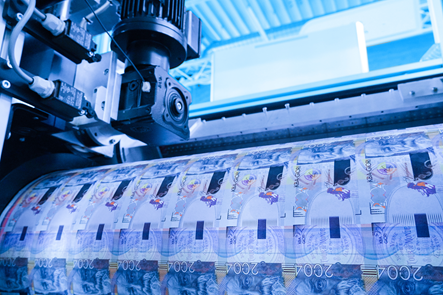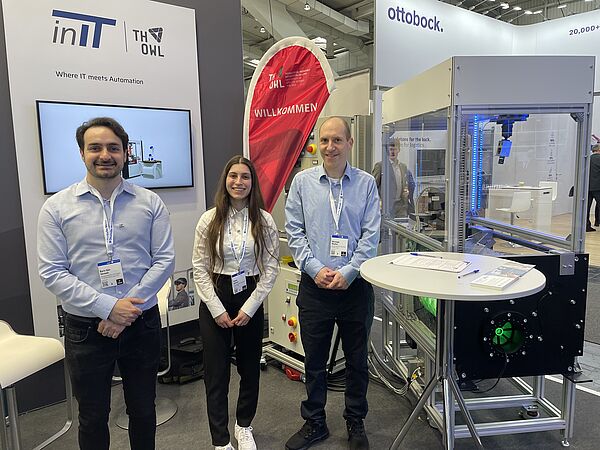At inIT we specialise in the development and implementation of cutting-edge technologies for industrial applications. Our research focuses on the integration of information technology and automation with the aim of optimising industrial processes and increasing efficiency.
One of our core competencies is in the area of Industry 4.0. We are dedicated to researching and implementing the latest technologies in this field, including Artificial Intelligence (AI), Machine Learning (ML), Human Machine Interaction, Industrial Communication, Digital Twins, Authentication, Cybersecurity and the Industrial Internet of Things (IIoT). Our experienced team works closely with companies across a wide range of industries to develop customised solutions for their specific needs. We have a proven track record of helping our customers optimise processes, reduce costs and increase productivity.
This year, a printing unit demonstrator was presented in the Industry.Zero context. In security printing, the printing unit demonstrator simulates the wiping process that is necessary in steel engraving (intaglio) to remove excess ink from the printed image. The demonstrator mainly consists of a plate cylinder and a wiping cylinder. In real operation, the wiping process reacts extremely sensitively to parameter settings (e.g. contact pressure) and is usually adjusted by experts with many years of experience.
What does this have to do with Industry.Zero?
Consistency: In intaglio, a wiping process is essential to ensure that excess ink is removed from the plate, leaving only the ink in the engraved depressions. Using AI and information fusion, this wiping process is guaranteed to be consistent across all prints, resulting in a more uniform and higher quality end product.
Quality control: AI methods and information fusion can monitor the wiping process to detect deviations or inconsistencies. Quick adjustments to the wiping process ensure that each print is of the highest possible quality.
Efficiency: Using AI and information fusion, the wiping process can be optimised to reduce the time required for each print. This means more prints can be produced in less time, increasing overall productivity.
Cost savings: By optimising the wiping process, the amount of ink used in printing can be reduced, resulting in cost savings. In addition, AI and information fusion help to identify potential problems in the wiping process, reducing the need for costly manual intervention and maintenance.
Sustainability: Intaglio printing produces large amounts of waste ink. By using AI and information fusion to optimise the wiping process, it is possible to reduce the amount of waste ink produced and make the process more sustainable.
Thanks go above all to all the inIT staff for the good organisation, trade fair set-up and operation.




